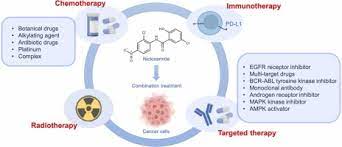
Breaking News
 Will Trump's Legacy Be Saved If He Starts World War III?
Will Trump's Legacy Be Saved If He Starts World War III?
 AI-powered warfare: Anthropic's Claude model used in Venezuelan military raid
AI-powered warfare: Anthropic's Claude model used in Venezuelan military raid
 U.S. deploys second aircraft carrier to Middle East amid escalating tensions with Iran
U.S. deploys second aircraft carrier to Middle East amid escalating tensions with Iran
 The Last Line of Defense: Why America's sheriffs are the last barrier against tyranny
The Last Line of Defense: Why America's sheriffs are the last barrier against tyranny
Top Tech News
 New Spray-on Powder Instantly Seals Life-Threatening Wounds in Battle or During Disasters
New Spray-on Powder Instantly Seals Life-Threatening Wounds in Battle or During Disasters
 AI-enhanced stethoscope excels at listening to our hearts
AI-enhanced stethoscope excels at listening to our hearts
 Flame-treated sunscreen keeps the zinc but cuts the smeary white look
Flame-treated sunscreen keeps the zinc but cuts the smeary white look
 Display hub adds three more screens powered through single USB port
Display hub adds three more screens powered through single USB port
 We Finally Know How Fast The Tesla Semi Will Charge: Very, Very Fast
We Finally Know How Fast The Tesla Semi Will Charge: Very, Very Fast
 Drone-launching underwater drone hitches a ride on ship and sub hulls
Drone-launching underwater drone hitches a ride on ship and sub hulls
 Humanoid Robots Get "Brains" As Dual-Use Fears Mount
Humanoid Robots Get "Brains" As Dual-Use Fears Mount
 SpaceX Authorized to Increase High Speed Internet Download Speeds 5X Through 2026
SpaceX Authorized to Increase High Speed Internet Download Speeds 5X Through 2026
 Space AI is the Key to the Technological Singularity
Space AI is the Key to the Technological Singularity
 Velocitor X-1 eVTOL could be beating the traffic in just a year
Velocitor X-1 eVTOL could be beating the traffic in just a year
Repurposed tapeworm drug, Niclosamide, kills cancer cells

Niclosamide (or, Niclocide), is a teniacide in the anthelmintic family which is especially effective against cestodes (tapeworms). It has been approved for use in humans for nearly 50 years and is well-tolerated. Importantly, Niclosamide inhibits oxidative phosphorylation and stimulates adenosine triphosphatase activity in the mitochondria of the worms This has been shown both in vitro and in vivo. This action plus the inhibitory effects of niclosamide on cancer stem cells make it a promising drug for cancer treatment (8).
1. Niclosamide attacks cancer cell mitochondria and combats p53 deficiency
As cells are progressively weakened through, for example, a failure of the magnesium pump on their surface and thus too much sodium entering the cell, the influence of oestradiol and lowered oxygen levels, the cells' mitochondria lose power and the p53 gene switches off. Under normal circumstances, p53 is in charge of a regulated cell growth and division. Without p53 in charge, the cells go out of control, growing rapidly. This is cancer.



